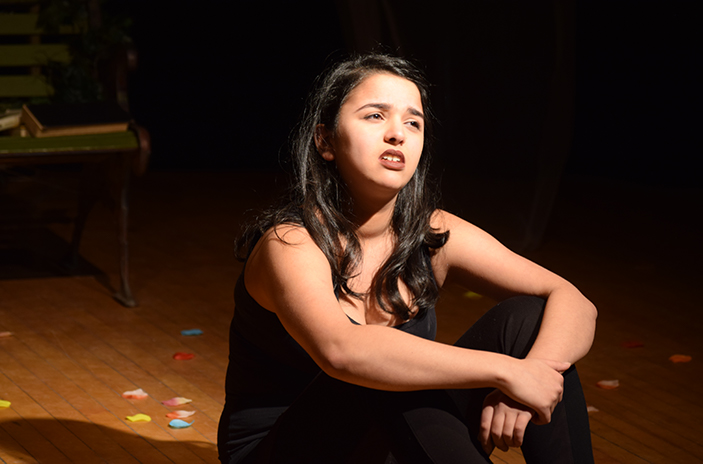Tuesday Night Cafe Theatre’s (TNC) FUSE is a confusing play. It includes little in terms of conventional plot structure or character development, and several days after seeing it, I am still having a hard time knowing what to make of it. If you like linear narratives and happy endings, this play might not be for you. However, for those looking for something different, or at least to leave Morrice Hall with more questions than answers, this play gives much to enjoy.
FUSE begins with a debate between prologues. Three characters, each personifying a prologue, argue over how a play should begin. The three prologues put forth theories dealing with the nature of art, theatre, and life itself. One character memorably laments that playwrights, unlike other artists, give their audience all the answers in their work. Although the line was delivered with some irony, it is nevertheless clear that FUSE avoids neat answers.
The play continues in a similar fashion as it began. Each act elaborates on a different theme by using unconventional devices like spoken word poetry and borrowed news headlines. Several motifs run consistent throughout the work, including femininity, existential anxiety, and expression of the body. These little scenes and the palpable emotion they imparted on the crowd come to form a plot of their own. FUSE does not move toward something so much as it digs deeper into the initial themes with which it began.
However, the casts’ performances are what really make the play. The emotion conveyed by each actor serves to translate some of the play’s more cerebral or esoteric moments into something immediately understandable. In addition to playing the role of prologues, some of the actors played audience members. These planted spectators left the crowd to take their place on stage on cue, making the transition from observer to actor seem natural, although still unexpected. By blurring the distinction between audience member and cast member, one begins to wonder what the role as an observer really is, and how a play can be shaped by interpretation and the environment in which it is viewed.
With scenes dealing with global violence and personal drama, FUSE asks audiences whether they play the parts of observers or actors in their own lives. In many ways, these questions are the hallmarks of great art. Not only does it make one question the nature of the piece, but life itself is viewed and inspected in relation to what is unfolding on stage.
Although FUSE relishes its abundance of unanswered questions, it is unquestionably worth seeing. Despite some confusion, FUSE is filled with good writing, moving performances, a healthy dose of continental philosophy, and a nearly glutinous serving of skepticism. I find it very hard to believe the play’s slogan, “Everything is Meaningless.” It might take several viewings to grasp, but there is a lot to take to heart here.
TNC’s FUSE is playing from January 31 – February 3 at 8 p.m. in Morrice Hall in the Islamic Studies Building, 3485 Rue McTavish. Tickets are $6 for students and $10 general admission.








